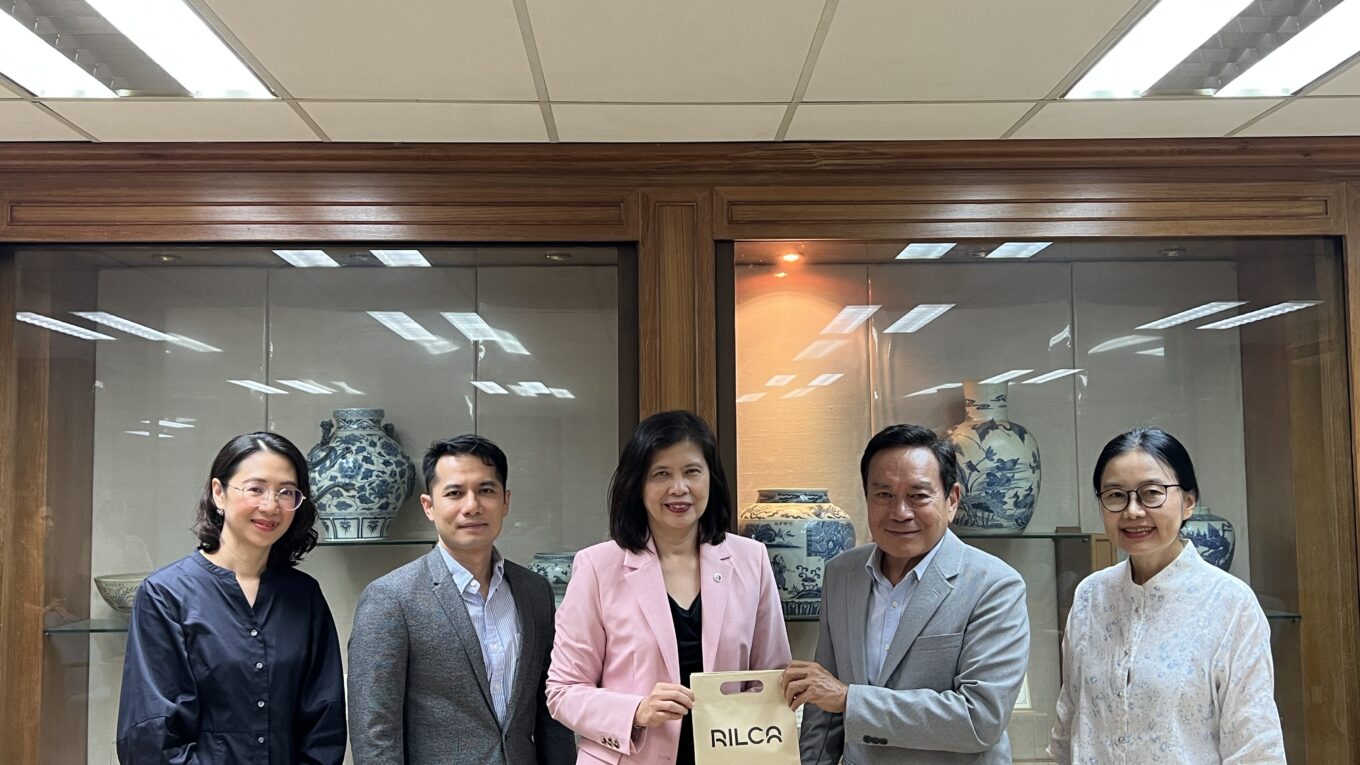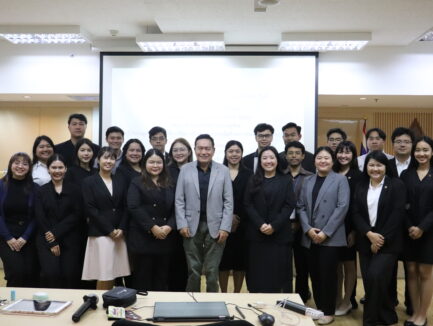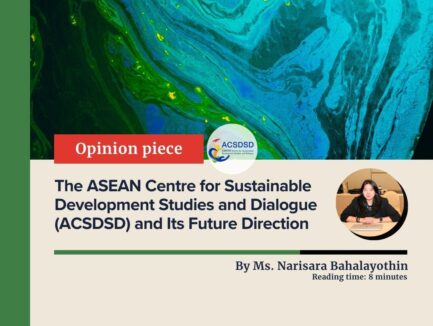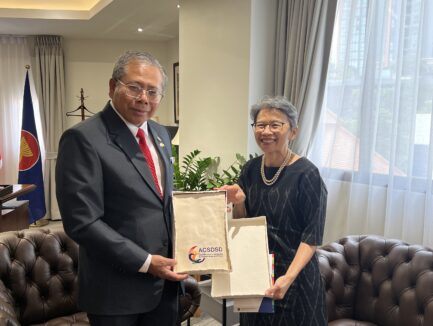Strengthening ASEAN Thought Leadership for Sustainable Development: RILCA and ACSDSD

Our mission
On 25 August 2025, Dr. Anthony Pramualratana, Deputy Executive Director of ACSDSD accompanied by Ms. Suchada Phruthonkul, Project Manager paid a visit to the Research Institute for Languages and Cultures of Southeast Asia (RILCA) to discuss possible collaboration between RILCA and ACSDSD. Assoc. Prof. Dr. Nuntiya Doungphummes, Director of RILCA together with Asst. Prof. Narongdej Phanthaphoommee, Deputy Director for Research and International Relations and Assoc. Prof. Sirijit Sunanta welcomed the ACSDSD representatives and concluded the meeting with the joint collaborative effort to implement an ASEAN sustainable development thought leadership network under the ASEAN Community Vision 2045.
🌏 Why Thought Leadership Matters in Southeast Asia
Thought leadership plays a pivotal role in shaping Southeast Asia’s dynamic future. As the region navigates rapid economic growth, digital transformation, and complex sustainability challenges, thought leaders, who play the role of experts that drive innovation and influence, are essential for guiding policy, business, and community development. In ASEAN nations, where diversity and collaboration are key, thought leadership fosters cross-border dialogue, elevates regional expertise, and promotes inclusive solutions tailored to local contexts.
🌐 ACSDSD’s Thought Leadership Network: What It Takes to Lead the ASEAN Community Vision 2045
ACSDSD is actively developing a regional network of thought leaders to advance sustainable development across ASEAN. Successful thought leaders demonstrate deep expertise in a specific niche, maintain ongoing engagement with emerging trends and challenges, and articulate a clear, authentic point of view. Their credibility is built through consistent contributions, and they cultivate a supportive following that values their insights and impact. By fostering these qualities, ACSDSD’s network aims to elevate voices that shape policy, inspire innovation, and drive collaborative solutions aligned with the ASEAN Community Vision 2045.
ACSDSD, Formulating Solutions and Pathways for Sustainable Development in ASEAN
For more information:
Mark your calendar, register now for ASEAN Circular Economy Forum 2025
ASEAN Circular Economy Week 2025 is coming to Kuala Lumpur! 13–17 October 2025
Main Highlight: ASEAN Circular Economy Forum 2025 (ACEF 2025)
16–17 October | KLCC
Theme: “Accelerate the circular economy transition in ASEAN with green skills, innovative solutions, and investments.”
ACSDSD youth camp initiatives: Read more
ACSDSD research grant for sustainability studies: Read more
ACSDSD-CMMU-MFA educational program: Read more
Contact our team. Ms. Suchada Phruthonkul (Project Manager) suchada.phr@acsdsd.org


